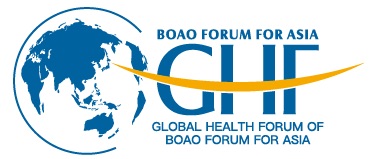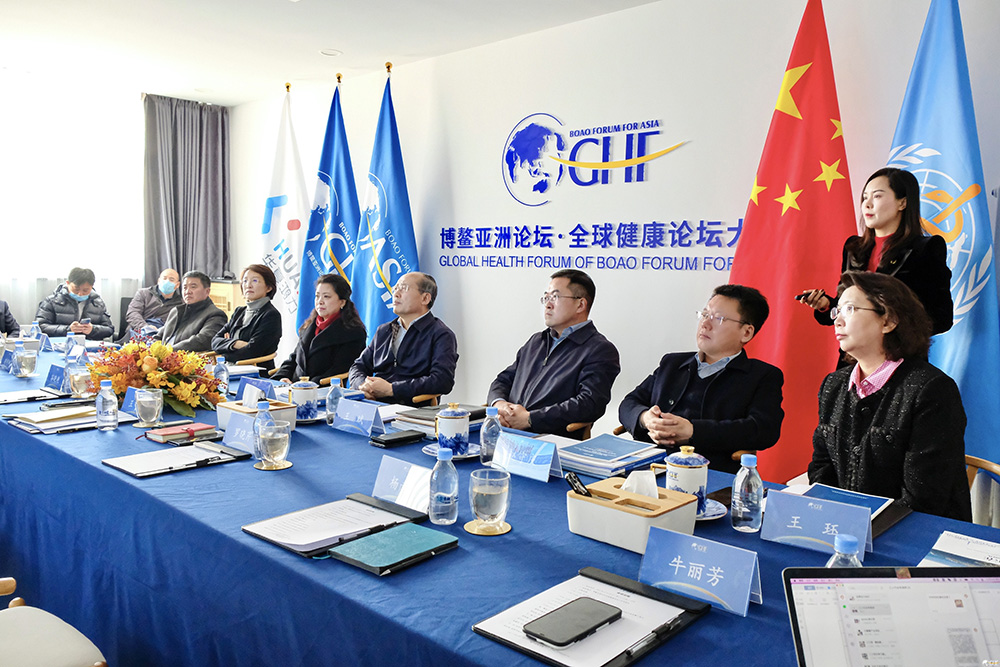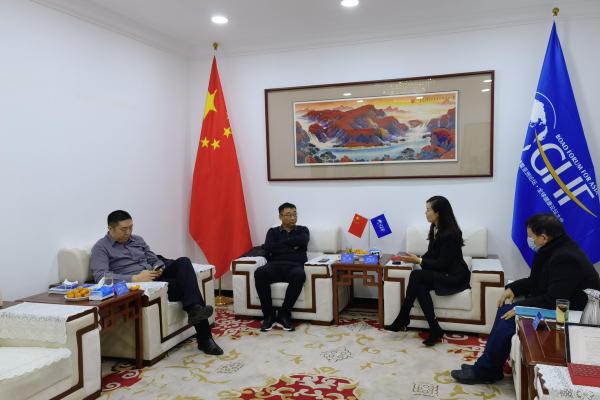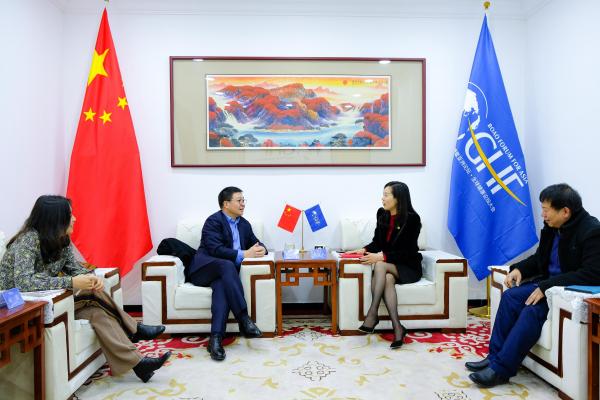"I hope that the BFA 20th anniversary conference will be forum for such practical lessons. As socialism with Chinese characteristics entered a new era on its 40th year of reform and opening up, can the BFA serve the “new normal” on its 20th year of bridging Asia and the world."

Boao Forum for Asia, Congratulations! It’s been a great 20 years.
In the Philippines, we are proud that our former President Fidel Ramos was a founding father in 1998 of the BOAO Forum for Asia. This was a mere 20 years from the time that China began its period of economic reform and opening up in 1978, so President Ramos had the vision and foresight to promote a closer relationship between the Philippines and China by way of his personal role in co-founding the Boao forum.
The original intention of the establishment of BFA was to be Asia-based so as to promote and strengthen economic exchanges, interaction and cooperation within the region, as well as between the region and other parts of the world. BFA provides a high-level venue for dialogue between leaders from government, private enterprise, academia and other juridical associations to discuss, exchange and develop ideas in the scope of economic, social, environmental and related issues. It facilitates the cooperation between its members, partners and supporting parties through its established networks.
" In my view, the significance of the Boao Forum is that it gives the world’s political, business and social leaders who are deeply involved in Asia, the opportunity to step back from the immediate pressing concerns of political, business or social governance, and for a time focus on the bigger, longer term issues."
In April 2002, President Ramos was elected Chairman of the Boao Forum for Asia; I was then President of the Philippines. On President Ramos’s invitation I delivered a video message to the forum, but it was in 2007 that I had the honor to attend the forum personally as keynote speaker, under the theme of “Asia Winning in Today’s Global Economy – Innovation & Sustainable Development.”
At that time growth in Asia was transitioning from being export-driven to domestically-driven. That shift was bringing Asia’s leading lights – China and India — to first-world status to add to the economic power of Japan in the region. It was a good, positive, healthy development but we had work together to add to, not subtract from our quality of life. In that forum, we learned from Dr. Muhammad Yunus the power of micro-finance. And the global success of Microsoft under the visionary leadership of Bill Gates, who in that forum reminded us of the power of innovation to change the world for the better.
Ten years later, in October 2017, President Xi Jinping declared that socialism with Chinese characteristics had entered a new era. In April 2018, I was honored to succeed President Ramos on the BOAO Forum Board of Directors. That year 2018 marked the 40th anniversary of China’s reform and opening-up.
The Boao forum that year highlighted how China’s bold and historic policy of reform and opening to the world unleashed the world-leading period of growth that continues to this day. This achievement, unmatched in human history, has lifted 800 million people out of poverty and China to the cusp of being the largest economy in the world.
I recall that when I began my career in public service, it was in the 1980’s and the term “dragon economy” was coined to describe the economic miracle starting to take shape in Asia. As an official in my country’s Department of Trade and Industry, I was wondering then if China would become our chief competitor in the world market. Little did I realize then that China was in a class of its own. Rather than a competitor, China has proven to be a partner in development – it is a market for developing countries, a donor, a provider of capital and technology.
The BFA again played its role in bridging Asia and the world when its annual conference of 2018 focused on openness, innovation and globalization. The Boao forum adopted the theme of "An Open and Innovative Asia for a World of Greater Prosperity". President Xi Jinping said China will further open up its market.
Historically, it was the U.S., the world’s leading power, which viewed its role to spearhead the propagation of globalization and free trade. It entered into trade agreements which perhaps consciously reflected this perceived “missionary” role. But by 2018, a new conservatism was official policy in the United States, and past trade agreements were viewed by conservative-nationalists as being too concessionary and inimical to domestic labor. Whether America’s actions in the matter are purely tactical and meant primarily to gain negotiating leverage, is unclear. But the multilateral trading system was severely affected, and uncertainty to the world economy as well as to Asia was brought about by unilateralism and protectionism.
Ironically, China has developed into a champion furthering opening up, much as the pre-Trump U.S. was. In the face of the threat posed by the US trade war, the Party Politburo correctly stated, “We have to enhance reform and opening up.”
Aside from openness, one key to China’s success is the immense importance it places on state-of-the-art technology. In 1978, Deng Xiaoping declared that science and technology modernization was the foundation for modernizing in turn all other sectors. At the 2017 Party Congress, President Xi Jinping reported China has accomplished much in becoming a country of innovators, with major advances in science and technology. Given China’s fertile environment for science and technology, it comes as no surprise that the Chinese technology giants Alibaba and Tencent are among the 10 most valuable companies in the world.
At the BFA youth forum in Hong Kong in November 2018, the theme was “40 Years of Reform and Opening: China and the World.” I brought with me 10 Filipino youth to the forum after arranging a tour for them in Guangzhou. I wanted more young Filipinos who up to now had only heard of the tremendous economic progress of China to have the opportunity to actually visit China and see for themselves the result of China’s economic miracle these last 40 years.
The 13th National People's Congress of China of 2018 adopted a constitutional amendment that promoted the building of a community with a shared future while developing diplomatic relations and economic and cultural exchanges with other countries. The world should view the rise of China not as a threat but as an opportunity. To this end, I believe that the Boao forum is an excellent platform to foster a sense of community of shared destiny. It played its role again in bridging Asia and the world when its theme for its annual conference 2019 was “Shared Future, Concerted Action, Common Development.” The shared future calls for concerted efforts to achieve growth together.
" China’s development over the time span of 70 years brought to the rest of the world that there is no such thing in the world as a development model that can be applied universally, nor is there any development model that remains carved in stone. The diversity of historical conditions determines the diversity of the development path chosen by various countries."
The year 2019 marked the 70th anniversary since the establishment of People’s Republic of China. China’s development over the time span of 70 years brought to the rest of the world that there is no such thing in the world as a development model that can be applied universally, nor is there any development model that remains carved in stone. The diversity of historical conditions determines the diversity of the development path chosen by various countries.
During the Boao conference of 2019, I particularly liked the topic on 70 and 40 Years in Retrospect: China in a New Era, because it seemed to speak to China’s sense of history and long-term view of national development. Perhaps this is one of the keys to the success of the Chinese brand of socialism, that being led by one party, the Communist Party of China, developments seem to be guided not by a short-term vision that changes from government to government but by one consistent long-term vision.
In April 2019, we convened the BFA Boao Manila Conference under the theme of Concerted Action for Common Development in the New Era, co-sponsored by the Federation of Filipino-Chinese Chambers of Commerce and Industry, with the Philippine Chamber of Commerce and Industry as supporting partners. The Conference convened business leaders from China and the Philippines, and some executives from the Chinese enterprises in Philippines. Senior officials of the Philippine government and business chambers addressed and interacted with the audience. The Conference helped the visiting Chinese entrepreneurs better understand the business environment and related policies of Philippines, and introduced the BFA to the Philippine government and business community.
The year 2020 was an unusual year. All countries suffered from the COVID-19 pandemic. The BFA Conference 2020 was postponed indefinitely and the board convened online.
At the 75th anniversary of the United Nations, President Xi pointed out that the sudden attack of COVID-19 is a grave test for the entire world. He added that mankind has entered a new era of interconnectedness, with countries sharing intertwined interests and their future closely linked together. Global threats and global challenges require strong, global responses.
" Indeed, in times such as this, I believe the best attitude is to look for solutions in cooperation with as many parties and countries as possible that have things to contribute to the effort. The BFA would be a useful forum for this purpose. "
Expectedly, COVID-19 has impacted the world economy. But it is not surprising that the Chinese economy, which shrunk in the first quarter of the year, bounced back in the second and third quarters. After all, since China’s reform and opening up in 1978, it has proven that its approach of long term planning and determined execution of such plans is effective.
With China restarting its economy, we can expect beneficial spillover effects on the economies of Asia. Again, BFA would be a useful forum to discuss how to maximize the beneficial effects, not only for Asia, but also for the rest of the world, now and in the “new normal,” of the post-COVID-19 era.
The “new normal” has inspired innovative practices for economic recovery and sustainability. China is trying many ways to create more job opportunities like encouraging internet sales and the night market economy. Such innovative alternative ways of conducting day-to-day business might well become major features of the “new normal.” The way such novel approaches will be implemented in an economy as large as China’s will surely provide many practical lessons to Asia and the world.
I hope that the BFA 20th anniversary conference will be forum for such practical lessons. As socialism with Chinese characteristics entered a new era on its 40th year of reform and opening up, can the BFA serve the “new normal” on its 20th year of bridging Asia and the world.



 Viewpoints
Viewpoints
 Partner application
Partner application Download
Download Hot News
Hot News









